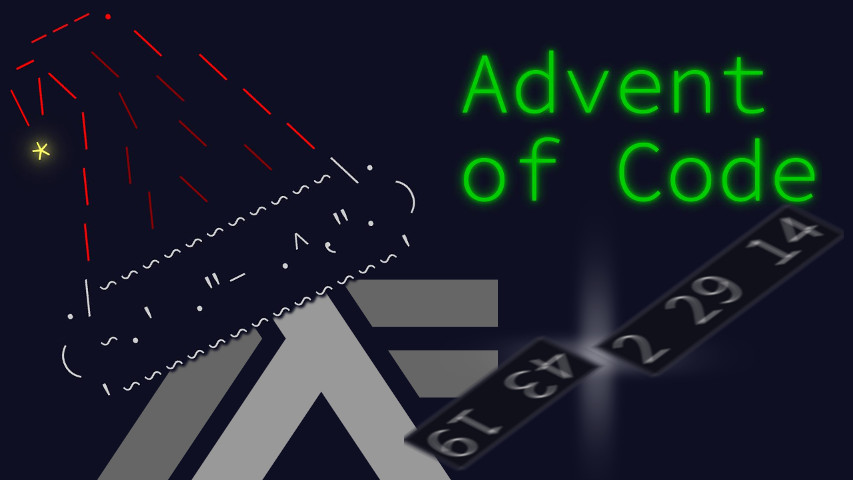Not much to talk about in today’s Advent of Code challenge: I just read the statement and implemented as it went. As usual, this post is a literate Haskell program.
import Data.List.Split
import qualified Data.Set as SetSpace cards have a semi-infinite rank, no suit and no duplicates. I’ll represent a deck of them as a simple list.
type Deck = [Int]Reading the input would probably be easier with Emacs shortcuts, but heck this is a literate Haskell program, I might just as well code it up.
parseInput :: String -> (Deck,Deck)
parseInput i = (read <$> d1,read <$> d2)
where ["Player 1:":d1,"Player 2:":d2] = linesBy null (lines i)Ok, let’s tackle the actual problem. The winner’s score is computed
as a weighted sum, implemented with Prelude functions.
score :: [Int] -> Int
score s = sum $ zipWith (*) s [n,n-1..]
where n = length sλ> score [3,2,10,6,8,5,9,4,7,1] 306
Deciding which player wins a round is the determining aspect of the day’s two parts. I’ll extract that as a type and function.
data Side = P1 | P2 deriving Show
type Rule = Deck -> Deck -> Side
simpleGameRule :: Rule
simpleGameRule (h1:_) (h2:_) = case compare h1 h2 of
LT -> P2
GT -> P1Just as the statement says: winner is the one who shows the highest-ranked card. We take note that this function would be partial if the input could contain duplicates.
Now to implement the full game logic.
game :: Rule -> Deck -> Deck -> (Side,Int)
game rule = go Set.empty where
go cl d1 d2 | (d1,d2) `Set.member` cl = (P1,score d1)
go _ [] d2 = (P2,score d2)
go _ d1 [] = (P1,score d1)
go cl d1@(h1:t1) d2@(h2:t2) = case rule d1 d2 of
P1 -> go cl' (t1 ++ [h1,h2]) t2
P2 -> go cl' t1 (t2 ++ [h2,h1])
where cl' = Set.insert (d1,d2) clPretty self-describing. I’ve included the part 2 amendment for game loop avoidance1 that’s unneeded in part 1, but doesn’t hurt either. It’s a bit unfortunate that the same full pattern-matching is needed for both the distinctive round winner decision and for moving the cards to their new place, but it’ll have to do.
This solves part 1 flawlessly.
λ> uncurry (game simpleGameRule) $ parseInput sample (P2,306)
Part 2 is simply a matter of transcribing the loop detection above, and the new, recursive game rule.
recursiveGameRule :: Rule
recursiveGameRule d1@(h1:t1) d2@(h2:t2)
| length t1 < h1 || length t2 < h2 = simpleGameRule d1 d2
| otherwise = fst $ game recursiveGameRule (take h1 t1) (take h2 t2)This solves part 2.
λ> uncurry (game recursiveeGameRule) $ parseInput sample (P2,291)
Here’s main for completeness.
main :: IO ()
main = do
(d1,d2) <- parseInput <$> readFile "day22.in"
print $ game simpleGameRule d1 d2
print $ game recursiveGameRule d1 d2This concludes today’s puzzle solution.
I call the accumulator
clfor “closed” as a matter of habit from writing graph search functions with an “open” and a “closed” node set.↩︎



